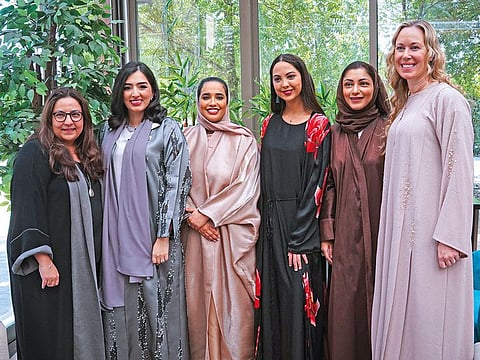Power of women in shaping inclusive diplomacy
UAE provides an example of women’s advancement in diplomacy and political empowerment

Diplomacy plays a crucial role in addressing complex global challenges and advancing cooperation among nations. Yet, despite women making up nearly 50% of the world’s population, the field of diplomacy has for too long been dominated by men, with women often sidelined and grossly underrepresented.
Today, our world is in desperate need of women to make their mark in diplomatic circles, challenge stereotypes, and reshape the scene of foreign policy.
Political correctness aside, a fundamental reason why women have long been left behind in the world of diplomacy is rooted in sexist stereotypes that women are the more emotional gender, which could hinder rational decision-making, and that their main ambition in life is to get married and raise children. The history of diplomacy is tainted by examples of ignoring women’s ideas and contributions.
Women constitute as little as 13 per cent of negotiators, 6 per cent of mediators, and 13 per cent of the leaders of international organisations. Research indicates that peace agreements negotiated with significant female participation are more durable and better implemented.
Women bring unique approaches to conflict resolution and peacebuilding, often emphasising inclusivity, dialogue, collaboration, women and girls’ rights, and long-term stability.
Their contributions have been instrumental in resolving conflicts and fostering peace in various places, including in Liberia and Colombia, where female negotiators and activists played key roles in ensuring that peace agreements addressed gender-based violence and included provisions for women’s rights. Their participation helped shape more comprehensive and sustainable peace agreements.
UAE example
UAE provides a progressive example of women’s advancement in diplomacy and political empowerment in a region tarnished by gendered discrimination and inequality. According to the World Economic Forum’s Global Gender Gap Report 2023, the UAE, along with 4 other countries, stands at full parity in the number of seats in national parliaments.
With two ministers of state working at the UAE ministry of foreign affairs (Reem Al Hashimy and Noura Al Kaabi), the UAE has placed women ambassadors in countries and organisations of significant importance, such as France, Switzerland, Egypt, and, previously, at the United Nations in New York.
This deliberate choice highlights the UAE’s commitment to gender equality and its recognition of the unique skills women bring to crucial diplomatic endeavours.
Yet, challenges persist everywhere. Gender equality is an ongoing battle that reflects the difficulties of bringing about real change in a world marked by severe gender gaps that will need around 134 years to close, according to the 2024 Global Gender Gap Report. In diplomacy, a field defined by old traditions, pomp, and protocol, barriers to gender equality are even more serious.
We cannot, however, wait any longer. Global crises are becoming ever more complex, tensions between the world’s superpowers continue to rise, and the bells of war are ringing louder than ever in the Middle East since October 7.
In Gaza, where negotiations for a ceasefire and mediation efforts have been ongoing for over eight months, the persistent cycle of violence continues without meaningful resolution, leaving thousands of women and girls dead, displaced, orphaned, abused and sick.
This ongoing tragedy highlights the urgent need for diverse voices, particularly those of women, in the pursuit of peace. Despite its horrendous impacts on the lives of women, they continue to be severely underrepresented in negotiations — a serious obstacle to a desperately-needed peace.
Resolving climate crisis
Women’s organisations on both sides, such as “Women of the Sun” in Palestine and “Women Wage Peace” in Israel, have tried to work together and advocate for peace. Alas, their efforts and cries have thus far gone unheard.
I realise that increasing the number of women diplomats will not solve the pressing challenges that our world faces. It will not bring peace to Gaza or resolve the climate crisis.
It is wishful thinking to believe that the presence of women in diplomatic positions is enough to make the world a better place. In fact, there are scores of examples that one could cite where women themselves were the perpetrators of harm and violence.
But our old ways have gotten us nowhere and our region needs everyone to sit around the same table. Women must be entrusted with real decision-making power and authority.
What we need is not tokenism, but a genuine commitment to placing the right women, those who have earned their positions through merit and demonstrated capability, in roles where they can make substantial breakthroughs.
Dr. Sara Chehab is a Senior Research Fellow at the Anwar Gargash Diplomatic Academy in Abu Dhabi
Sign up for the Daily Briefing
Get the latest news and updates straight to your inbox



